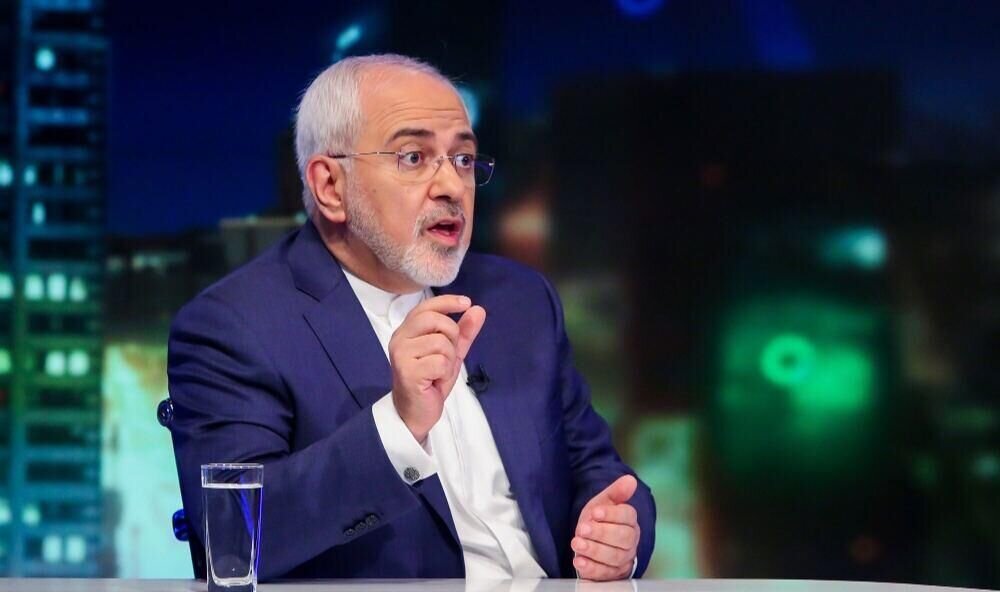Pompeo is waiting for a JCPOA movie to get what it is, says Zarif

TEHRAN — U.S. Secretary of State Mike Pompeo has not read the text of the 2015 nuclear deal and is waiting for a movie about it in order to understand what’s in the deal, says Iranian Foreign Minister Mohammad Javad Zarif.
In a televised interview on Saturday night, Zarif rejected the United States’ efforts to reimpose the UN sanctions on Iran under the so-called snapback mechanism, saying Pompeo thinks initiating the mechanism is as easy as announcing that it has been initiated.
“Pompeo thinks this is a simple mechanism, and they issue a statement that the resolutions will return in a month,” Zarif said. “But that’s not the case.”
“This is because he has not read the JCPOA and has only listened to interviews, and I think he is now waiting for a JCPOA movie to come out in order to understand what the JCPOA is,” he added.
Tehran and Washington have been at loggerheads since Donald Trump became president.
The Trump administration has pressured other countries to reimpose UN sanctions against Iran despite the fact that other parties to the deal have resoundingly rejected the U.S. measure as illegal.
It is the latest move in the “maximum pressure” campaign against Tehran, which the U.S. pursued after it withdrew from the nuclear deal in May 2018.
Pompeo said on Saturday evening that the U.S. has reimposed UN sanctions against Iran.
“It is clear that all members of the Security Council, with the exception of the U.S. and another country, have officially announced that they do not recognize the U.S. measure,” Zarif said.
He pointed out that there are times when two sides of an issue disagree on something and there are other times when one side does not even acknowledge the other side’s standing.
“We’re currently in the second scenario and countries believe that the U.S. has no standing,” the chief Iranian diplomat noted.
In his Saturday statement, Pompeo warned that the U.S. “is prepared to use our domestic authorities to impose consequences” for other countries that do not enforce the sanctions.
A day earlier, Britain, France and Germany said in a letter that the sanctions would have no legal effect.
“We have worked tirelessly to preserve the nuclear agreement and remain committed to do so,” said the letter, according to The New York Times.
During his Saturday night interview, Zarif pointed to an article by former U.S. National Security Adviser John Bolton, saying that even Bolton – who is known for his hawkish views on Iran – has acknowledged that the snapback of former resolutions is a lengthy, complicated procedure.
“The White House asserted on Aug. 20 that the U.S. was still a ‘JCPOA participant state’ under Resolution 2231, and thus had standing to invoke snapback,” Bolton wrote in an opinion piece published by Bloomberg on August 27.
“Of course, when Trump left the deal, he directed the State Department to ‘take all appropriate steps to cease the participation of the United States in the JCPOA’,” Bolton added.
Last month, Washington attempted to extend the UN arms embargo on Tehran. The move failed miserably, with only the Dominican Republic joining Washington in voting yes.
Zarif said 13 countries out of the 15-member UN Security Council announced that the U.S. is not entitled to trigger the mechanism.
“Even the country that had voted for the resolution seeking to extend Iran’s arms embargo has kept silent with this regard,” he added.
The foreign minister said the U.S. has been bullying other countries not to sell weapons to Iran. “This means that the Americans themselves do not believe in the return of the resolutions.”
Reacting to a possible move by France, Germany, and the UK to restrict the sale of weapons to Iran following the October expiration of the UN arms embargo, Zarif said Iran will meet its strategic needs by purchasing weapons from Russia and China, and has no need for European weapons once the embargo lifted.
“We haven’t been a customer of Europe’s weapons, and they haven’t sold us weapons after the [Islamic] Revolution,” he remarked.
“However, Iran can meet its strategic needs through the countries it interacts with, like Russia and China, even though it is self-sufficient in many cases, and is an exporter itself,” Zarif stated.
MH/PA
